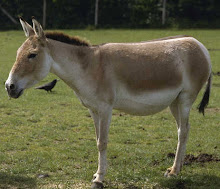I don't usually stray into political matters -- there are far better informed sites for that (and I'm going to add a list of those sites soon). But yesterday I read this post at Window On Eurasia on remarks by Russian President Vladimir Putin about his chosen, I mean elected, successor, Dmitry Medvedev, and it makes me wonder . . .
So how does this relate? I see a correlation in language between Kazakh (as an ethnicity/nationality), and Kazakhstani (as an identity-card-carrying citizenship), but no similar examination in Central Asian coverage on language use. Americans (with whose language I am most familar), blithely use Kazakh to mean "citizen of Kazakhstan," but none of the non-ethnically-Kazakh citizen of Kazakhstan I know would accept that term to describe themselves. Few have commented on the government's recent move to use Kazakh as a term for all "citizens of Kazakhstan," even though the pictures show Asian, Eurasian, Turkic, Slavic and European faces. Ignorance, complacency, or an identity shift I have yet to accept?
It seems to me that until all the native-born citizens of the country speak the same language as they settle into nationhood, words matter a lot. Until employment and educational opportunities are equalized for all citizens, regardless of "nationality" (because everyone speaks the same language), a pan-nationality term -- Kazakhstani in English -- is politically inclusive, as the politicians claim to be. One generation more, and maybe they're there. Is that really so long to wait to make all citizens feel like they belong?

No comments:
Post a Comment